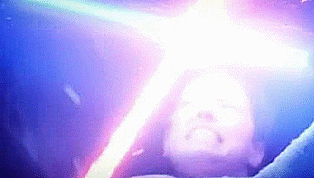But that disbelief must be suspended. Rey attuning herself to the force so fast broke people's disbelief. We didn't see her struggle with it outside of those first few tries with that Stormtrooper. Some of us like to see the characters grow and learn over the course of the movie. Neo didn't become the One immediately after Morpheus told him the truth. We saw him grow and get better. We saw his doubts in his abilities. Same with Luke. He wasn't instantly in tune with it. We saw him fail, we saw him grow, we saw him doubt. Admittedly, we see Rey do that, but, for me, it happened way too fast.
I didn't get that feeling. I've only seen the movie once so far, though, so maybe next time, I'll be on the lookout for it. Even if that's true, it just screams Midichlorian Jesus to me.
@bolded
I'd argue those people are vastly the minority. I had no problem with her accelerated use of it. The kids got talent...so to speak.
Anyway I'll bow out. I don't even like star wars that much to invest any further time into this. The whole thing is grounded in un-grounded nonsensical lore anyway.







